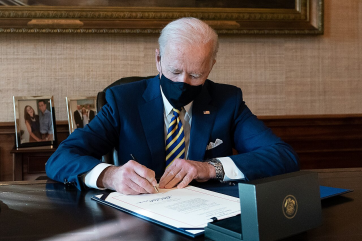Initiative Created To Better Screen And Prohibit Domestic Violence Offenders From Having Firearms
By Jaleesa BaulkmanA new initiative could help enforce existing laws that prohibit domestic violence offenders from having firearms, according to a pilot study conducted by violence prevention experts.
More intensive screening to identify firearm owners among individuals who are subject to domestic violence restraining orders could streamline processes to recover guns at the time those restraining orders are enforced, researchers at the University of California, Davis and the John Hopkins Bloomberg School of Public Health found.
"Intimate partner violence is a significant threat to the public's health and safety, especially for women, and firearms play a prominent role," Garen Wintemute, director of the University of California, Davis Violence Prevention Research Program and lead author of the study. "Women are at least twice as likely to be murdered by partners using a firearm than by strangers using any weapon."
Wintemute added that domestic violence offenders are five to eight times more likely to kill their victims than those without firearms and are nearly eight times more likely to threaten partners with firearms.
"We need to do more to disarm known offenders to prevent violence," he said.
For the study, researchers worked with local detectives to track their efforts to identify and disarm individuals with firearms among those served with domestic violence restraining orders in San Mateo County between May 2007 and June 2010 and in Butte County between April 2008 and June 2010.
According to a press release, during this time, San Mateo County detectives reviewed 6,024 restraining orders on 2,973 individuals and linked 525 perpetrators to firearms which resulted in 119 offenders surrendering one or more of their firearms.
And of the estimated 1,978 restraining orders that Butte County detectives reviewed, "they served and maintained records on 305 orders to 283 respondents." The detectives identified 88 offenders with links to firearms among those 283 respondents and recovered one or more firearms from 45 offenders.
Almost all recovered firearms in both counties were taken into custody by law enforcement agencies, with the remainder being sold to licensed retailers, according to a press release.
"In this study, firearm transaction records and court documents each identified only 40 percent to 50 percent of offenders with firearms," Wintemute said. "With only 10 states archiving any firearm transaction records for 10 years or longer, most states will need to rely on court records and interviews with victims."
According to the Federal Bureau of Investigation crime database, an estimated 1,127 women were murdered and some 605,000 were assaulted by their partners in the U.S. in 2011. In addition, nearly 36 percent of U.S. women participating in the National Intimate Partner and Sexual Violence Survey said they have experienced violence at some time in their lives.
"Existing federal and state statutes addressing firearm possession among individuals subject to domestic violence restraining orders are one step in assuring that people who are violent toward their intimate partners don't have access to guns," Shannon Frattaroli, faculty with the Johns Hopkins Center for Gun Policy and Research and a study co-author, said in a statement. "Our study is instructive for states and localities interested in assuring those laws are enforced."
"This study represents a step in the right direction, but larger-scale studies will be needed to determine optimal procedures for screening and recovering firearms, assessing the incidence of adverse events and determining the effects on rates of violence," Wintemute said.
The study was published online Dec. 12 in the American Journal of Public Health.








